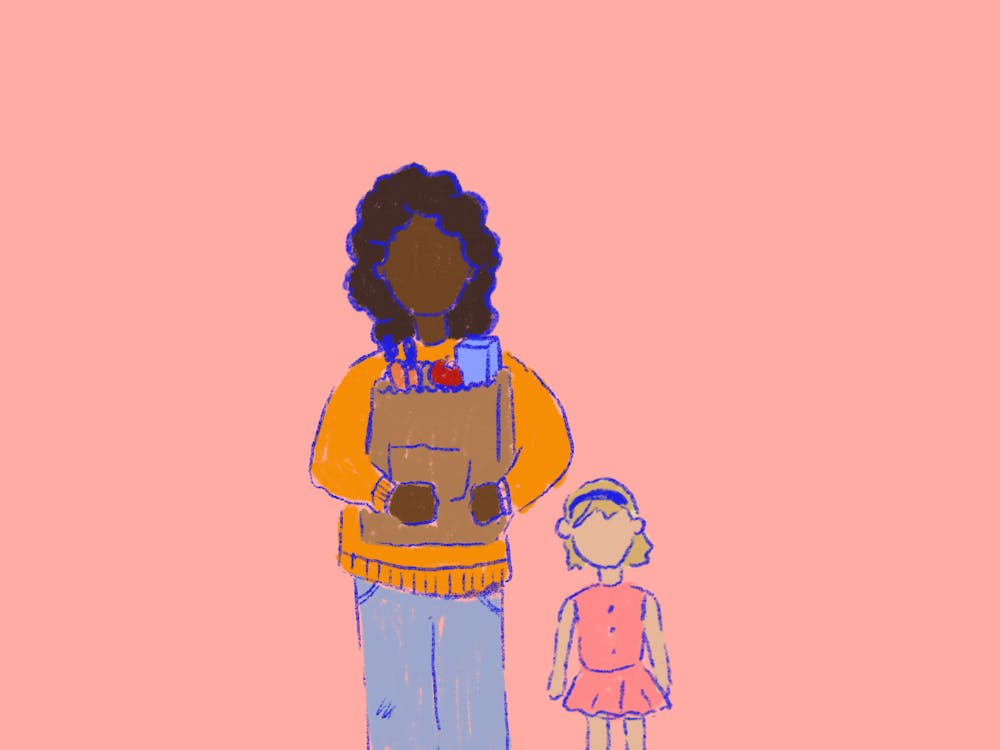We are currently in a moment of immense clarity. Whether that clarity is better or worse than the state of dulled content we maintained before— I don’t know. It’s clear we can no longer continue to convince ourselves that political correctness is synonymous with equality.
In the beginning of Kiley Reid’s Such a Fun Age, a white family’s Black babysitter, Emira—a 25–year–old college grad and part–time typist who takes care of four–year–old Briar—is stopped in the grocery store and accused of kidnapping the toddler. An all–too familiar cast is present: the accuser, a misinformed yet privileged white woman (who is believed first and questioned later), an overly aggressive cop, and a camera-phone armed bystander. It's a lower–consequence parallel to the often fatal racial tension that exists in the real world.
Alix Chamberlain—Briar's mom—is the epitome of the well–meaning white woman who prides herself on being progressive. After the grocery store incident, Alix vows to “wake the fuck up” and befriend Emira, primarily out of fears that Emira will quit. Her infatuation with Emira crosses the line of regular concern, so much so that Reid writes it as not “completely unlike a crush.” Throughout the novel, Alix’s infringement on Emira’s privacy becomes more unsettling, first seen in Alix’s daily practice of sneaking looks at Emira’s lock screen notifications. While Alix is obsessed with stealing nuggets of information about Emira’s life, Emira sees her as, at best, a disconnected and inattentive mother.
When Emira begins dating the aforementioned phone–wielding bystander (a white man named Kelley), Reid displays the dynamics between white and Black people in a more intimate relationship. Kelley’s friend group is all Black, he has a history of dating Black women, and genuinely seems to care for Emira (unlike Alix’s performative friendship). At one point, Kelley casually uses the n–word around Emira. Emira’s relationship with Kelley becomes a constant struggle, as she tries to rationalize whether he truly values Black individuals or if he only sees his proximity to blackness as a way to feel cool.
As the novel progresses, it becomes clear that Alix and Kelley have a deeply involved past. As a result, each is convinced that the other is racist. Emira, then, becomes the battleground on which they attempt to prove their non-racism. In letting us into their past, Reid skillfully offers a compassionate lens on the white characters in the novel, while elucidating that however convinced they are of their goodness, their treatment of Emira is far from noble.
In my experience, Such a Fun Age is reminiscent of Hulu’s adaptation of Little Fires Everywhere. Across both works, it’s often unclear if the villains are actually villains until inch by inch, the curtains are pulled back. One event causes them to show their true colors, and you begin to wonder how you ever felt empathetic in the first place.
But that’s how life works when you're Black, especially if you attended white schools. You study with white people, have sleepovers with them, throw parties with them, and even experience major life events with them. Of course, you have empathy for them. But, there are the small moments, too: the comments about affirmative action being your ticket into college, the “oh, you’re very well–spoken,” the casual use of the n–word in a song.
Like Emira, you might rationalize: Reid writes, "she had the sense that if she wasn’t working for this Mrs. Chamberlain, she’d be working for another one." There is the expectation that white people will always be ignorant to the Black experience, so those racially insensitive circumstances become a permissible offense, especially when the instances only hurt the Black person in the room.
These seemingly small acts of racism happen so consistently in white spaces that it becomes almost inevitable for Black people that are outnumbered to succumb to feeling mildly uncomfortable most of the time, rather than getting into an argument every hour.
But when a major event happens, like the current protests, no amount of sentimentality nor political correctness is able to save performative allies. It becomes uncomfortably clear that the approval of your one Black friend is far from an indicator of righteousness. Reid gives light to the nuances of racism outside of the obvious realm of vocal white supremacists, showcasing the microaggressions, assumptions, and small obstructions of humanity that exist in those 'I didn’t know better' actions of well–meaning white people.
Such a Fun Age shows us the injustice of expecting Black people to take on the emotional labor of constantly easing white guilt, while satirizing the “woke” white liberal, in order to demonstrate that what may seem clear on paper isn’t always so easy to see when dealing with the complexity of real life people. Reid urges us, and Emira, to consider: when the truth is unveiled and undeniable, what person will you be?

